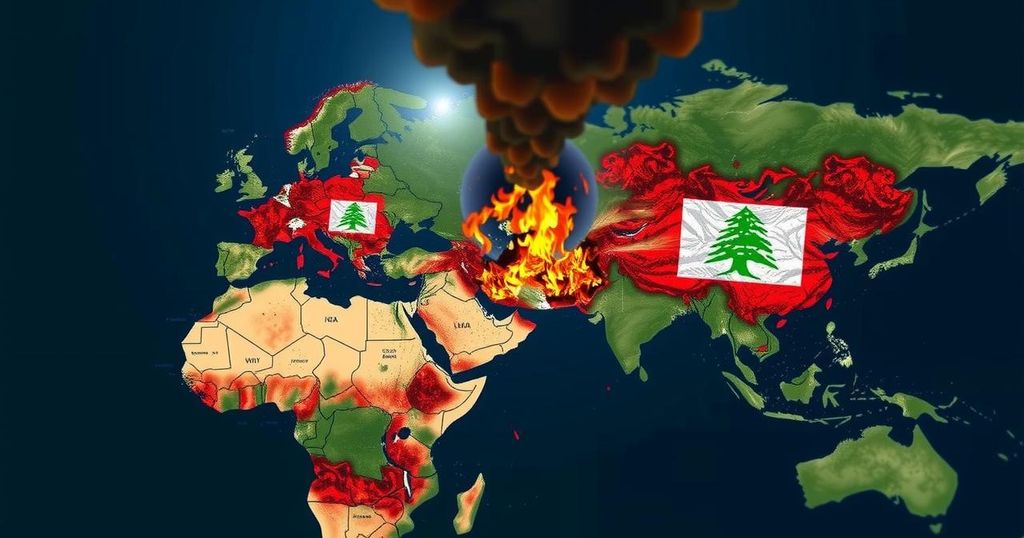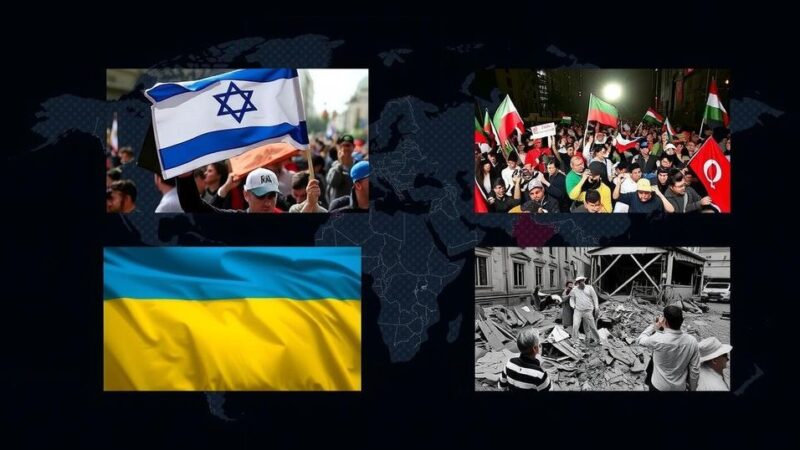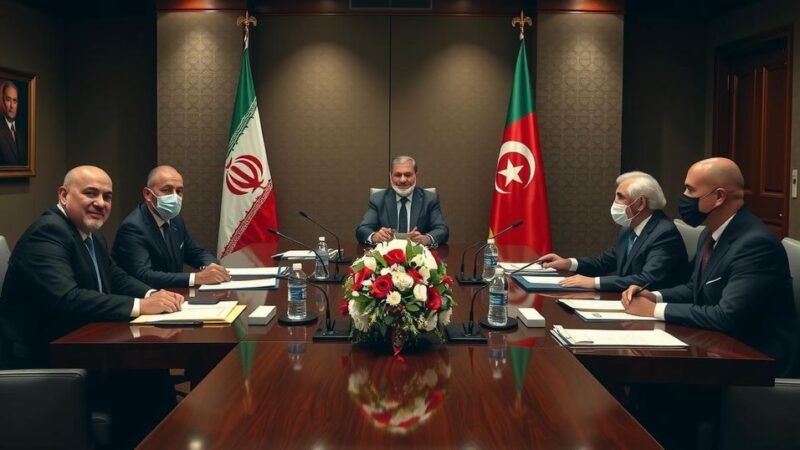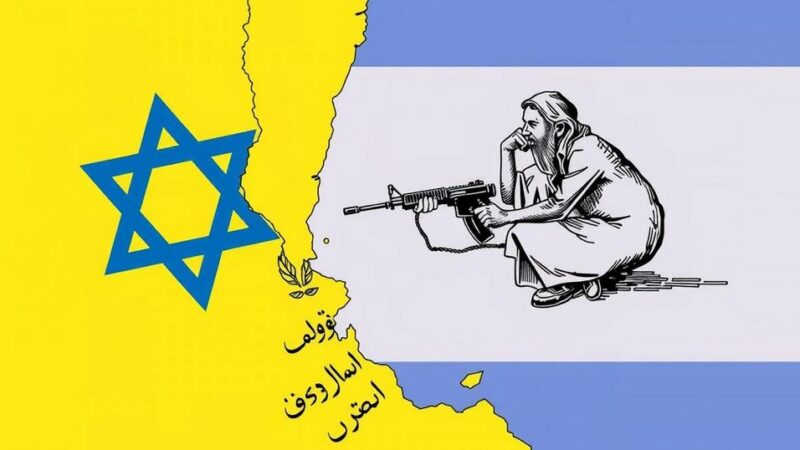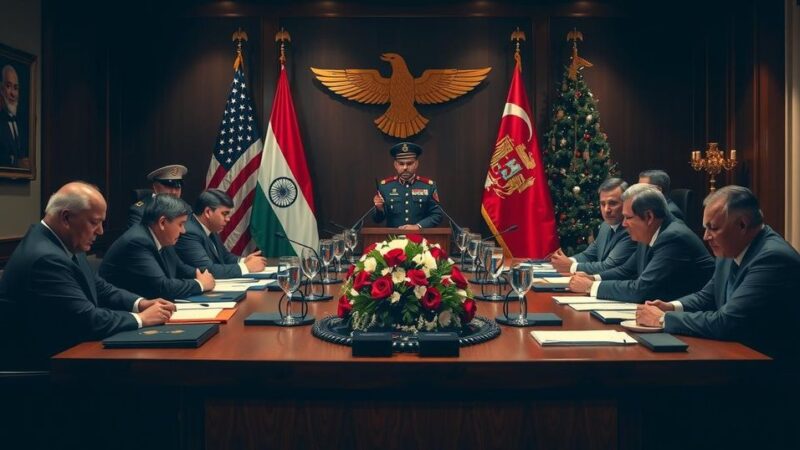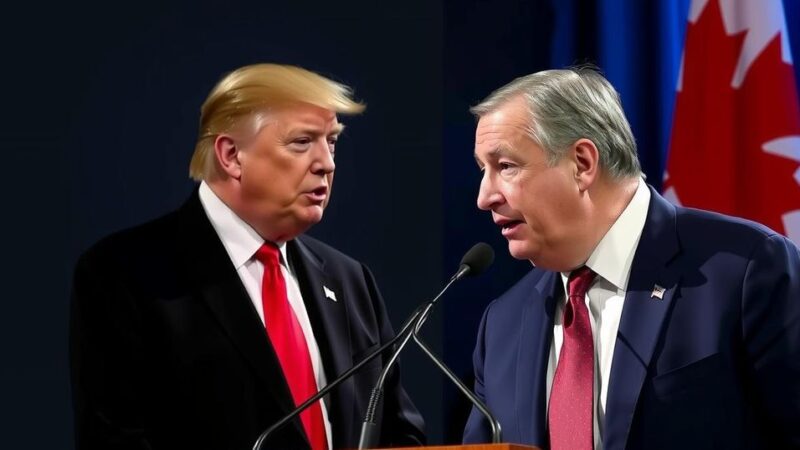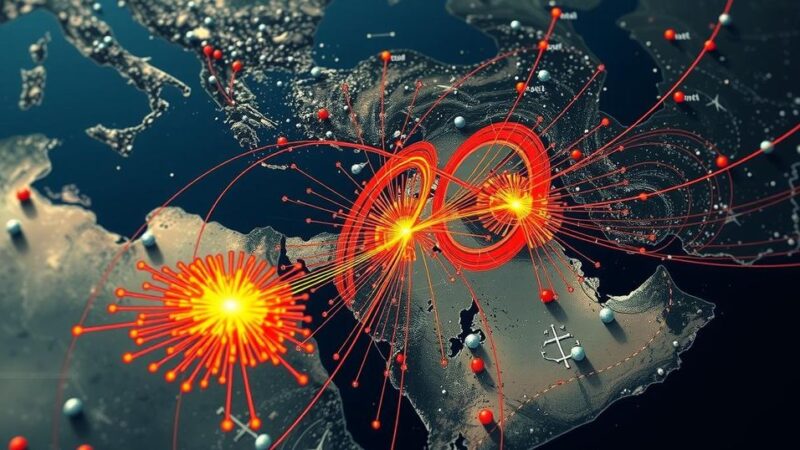World leaders have welcomed the ceasefire between Israel and Hezbollah, which aims to protect Israel from threats and foster lasting peace. Key figures, including U.S. President Biden and French President Macron, emphasized the importance of this agreement while pledging to work on strengthening Lebanon’s security forces. The ceasefire has been recognized as a vital step towards reducing regional violence and enhancing security for both Lebanon and Israel.
World leaders have expressed their support for the newly established ceasefire between Israel and Hezbollah, which commenced on Wednesday morning. This agreement is intended to safeguard Israel from the threats posed by Iranian-backed Hezbollah and lays the groundwork for sustained peace in the region. U.S. President Joe Biden and French President Emmanuel Macron jointly stated that this ceasefire signals an end to hostilities and facilitates a secure environment for the people of Israel and Lebanon.
In their joint declaration, Biden and Macron emphasized their commitment to ensuring the successful implementation of the ceasefire and pledged to collaborate on strengthening the Lebanese army. Biden described the arrangement as “good news” and indicated that the U.S. would also seek a truce between Israel and Hamas in Gaza. Macron reiterated the view that the Lebanon ceasefire could be a pathway towards resolving the ongoing conflict in Gaza.
Israeli Prime Minister Benjamin Netanyahu expressed gratitude to President Biden for his role in negotiating the ceasefire, conveying that he appreciated Biden’s recognition of Israel’s right to self-defense. He conveyed that the duration of the ceasefire would depend on developments in Lebanon while allowing Israel to maintain pressure on Hamas.
Lebanese Prime Minister Najib Mikati characterized the ceasefire as a crucial step toward regional stability, thanking both France and the United States for their efforts. He reaffirmed his government’s intent to bolster the army’s presence in southern Lebanon. Iran, backing Hezbollah and Hamas, commended the ceasefire, seeing it as a cessation of Israeli aggression.
European leaders also welcomed the ceasefire, with German Foreign Minister Annalena Baerbock calling it “a ray of hope” for the region, while British Prime Minister Keir Starmer described it as “long overdue.” EU chief Ursula von der Leyen acknowledged the potential for increased internal security in Lebanon as a result of reduced Hezbollah influence. A senior U.N. official recognized the agreement but highlighted the formidable challenges that lie ahead for its full implementation.
The article discusses the international response to a ceasefire agreement between Israel and Hezbollah, establishing a halt to hostilities that had raised concerns about regional stability. This ceasefire is set against a backdrop of escalating conflicts involving Iran-backed militant groups, particularly in the volatile landscape of the Middle East. The reactions from key global leaders highlight the importance placed on diplomacy in addressing these complex issues and fostering security not just for Israel but also for Lebanon and surrounding regions.
In summary, the ceasefire between Israel and Hezbollah has been met with widespread approval from global leaders, who view it as a pivotal step toward achieving lasting peace in the Middle East. While efforts are being made to strengthen the Lebanese military and ensure the ceasefire’s effectiveness, the true test will lie in the commitment of both parties to follow through on this agreement and work towards broader resolutions that promote stability and security in the region.
Original Source: www.hurriyetdailynews.com
